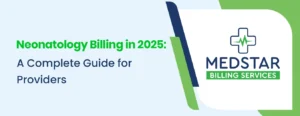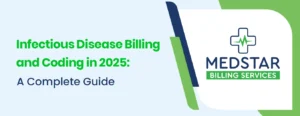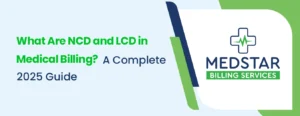Dental care providers are aware of the pain and consequences of unpaid insurance claims. If more claims are accepted by the insurance networks, more providers get reimbursements for their provided services. However, if the claims remain unpaid, then it can result in an increase in administrative burden and potential loss of revenue. But with the right approach, all the issues of unpaid claims can be effectively addressed, and providers regain the cash flow of their practices.
If you want to know more about ‘’ How to handle unpaid claims in dental practices’’ then this article is best for you. You will get familiar with the best practices that can work for dealing with the unpaid claims, so your dental practice gets back on track and gets a constant cash flow.
Top 10 ways to handle Unpaid Claims of Dental Practices
Whether the claim is denied or takes too long to process, the financial efficiency of dental practice decreases to a major extent. If the number of accounts receivable is increasing, then it can directly affect the financial health of the practice. Providers feel more frustrated as they face difficulty in getting the maximum revenue. Therefore, it is highly significant that claims preparation, submission, and processing should occur in an optimal way to prevent any errors that can hinder the revenue flow of practices.
Moreover, unpaid claims can be effectively handled by overcoming some common issues such as documentation errors, coding inaccuracy, and eligibility verification issues, etc. As a dental care provider, first, you should identify the common reasons for unpaid dental claims and the best ways to address them if you want the constant cash flow of your dental practice. The following are the main ways that can help in handling the unpaid claims of dental practices.
1 . Timely claim submission
Each insurance network has a predefined period in which it typically responds to claims, such as 30 days. Within this timeframe, they analyze the submitted claim and take action. If there is no issue, then they accept the claim. However, if any issue is found, then they directly deny the claim or delay the process of providing payments to providers.
What to do:
Submit the claim within the specified timeframe. It should ensure that insurance claims are submitted within 24 hours of the provided service. In addition, keep an eye on the entire process. If you do not receive any response, then immediately take action.
Pro Tip:
Run your aging claim report after some regular intervals. This will help you to effectively manage the accounts receivable. Moreover, by doing this, you can also identify the outstanding claims or overdue payments. Then you can take the necessary measures to address them and restore the improved cash flow.
2. Accuracy in data
The accurate or appropriate collected information is also linked the faster claim approvals. However, any single error in the gathered information can result in unpaid claims. Each insurance network first reviews the collected information, which includes:
- Patient demographics
- Details of insurance
- Procedure codes
If any of this information is incorrect, then there are higher chances that your claim will be rejected by the insurance network.
What to do:
To overcome the issue of unpaid claims, the following things should be ensured:
- Accuracy in information
- Trained billing staff
- Complete verification of information before claim submission
- Regular follow-ups after claim submission
Pro Tip: If you want to protect your practice from the errors that can develop a bundle of unpaid claims, then you can also outsource the dental billing to any professional dental billing company that is renowned for accuracy in claims. So, more claims are submitted, and the more you start getting payments for the provided dental care services to patients.
3. On-time error identification
In most cases, claims are rejected by the insurance companies due to multiple reasons, and it ultimately affects the revenue cycle of dental practices. Then, providers face revenue loss.
What to do:
- Timely identification of errors
- Proactive measures to prevent future errors
- Resubmission of claims
4. Keeping track of claim status
Managing claims is a time-consuming process and also requires regular follow-ups. Otherwise, it can result in unpaid claims.
What to do:
- Regular analysis to determine that each claim gets paid by the insurer
- Keep a track of deadline dates to track the status of unpaid claims.
5. Identify the common excuses.
Understand what the insurers are saying and what the main reasons for delay are. Moreover, you should also have an idea of how you should respond. For example, if the insurance network is saying that
‘’We have not received the claim.m’’ Then, recheck the claim and resubmit the claim. After that, get a confirmation of the submitted claim.
‘’ We require some additional information.’’First, find what is missing in the provided documents. Regather the data and send it.
‘’ Claim is under the process of analysis’’
Ask them regarding the timeframe and also ensure the follow-ups.
6. Accurate verification of the patient’s eligibility
Inadequate or inaccurate patient eligibility verification can also result in claim denials. Insurance networks deny claims if claims are submitted without complete and proper verification.
What to do:
- Thorough verification of the patient’s insurance eligibility and coverage limits
- Regular & real-time eligibility checks
7. Resubmit the claim with confidence
Your practice might have many unpaid claims, as claims can be lost, rejected, or delayed. Whatever the situation, do not feel overwhelmed. Instead of taking stress, find out the main errors, resolve them immediately, and resubmit the claims with confidence.
Things to do:
- Gather all the supporting documents such as periodontal charting, X-rays, and narratives.
- You can also make a cover letter to briefly explain the reason for resubmission.
- Don’t forget to add the original claim number.
Pro Tip: In case of any issue, you can also outsource dental billing to get professional help for resubmission.
8. Coding accuracy
Coding errors or inaccuracy are also another main reason for unpaid dental insurance claims. If you are using inaccurate codes or procedure codes that are not showing the offered services, then there are higher chances of claim denial by the insurance networks.
What to do:
- Coding experts should be trained to accurately use the codes, especially the latest CDT codes.
- Double-checks to prevent any errors in coding
- Meeting the coding standards
9. Take the measures when required
If the submitted claims are accurate and there is no error, but you are still seeing the unpaid claims, then you should immediately think about it:
What to do:
- Discuss the matter with the claims manager.
- You can also submit the formal appeal if required.
10. Clarity in financial policies
If the insurance network is rejecting the claim, then it does not mean that it is always the provider’s mistake. In most cases, the patient is also responsible for the claim denial or rejection.
What to do:
- Financial policies should be clear and transparent.
- Streamline invoicing and billing.
- Development of Clear payment terms
Partner with experts to handle unpaid dental claims
If you feel that you are unable to deal with the consequences of unpaid dental claims, then you can seek professional help from experts who have extensive experience in handling unpaid dental claims. Find the best outsourcing partner to diminish the unpaid claims, and you will quickly get payments for the provided services. MedStar Billing Services is a leading platform with a devoted team of experts who have years of experience in handling the unpaid dental claims and all other issues that might hinder the cash flow.
By outsourcing the dental billing to MedStar Billing Services, you can never find any unpaid claims in your dental practice and obtain maximized reimbursements for your dental practice.
Concluding Remarks
Always remember that you deserve to get paid for provided services. Dental practices should not chase the payments. Instead of this, they should resolve the major issues, such as unpaid claims. Dental practices can get paid on each submitted claim if some common issues, such as errors in coding, documentation, eligibility verification, and late claim submission, are resolved. With the help of some right actionable steps or partnering with any reliable third-party dental billing company, you can deal with unpaid claims by diminishing the denials and ensuring faster payments.
Related Articles:
How to reduce dental claims?
Common mistakes in dental billing
Dental billing demystified







